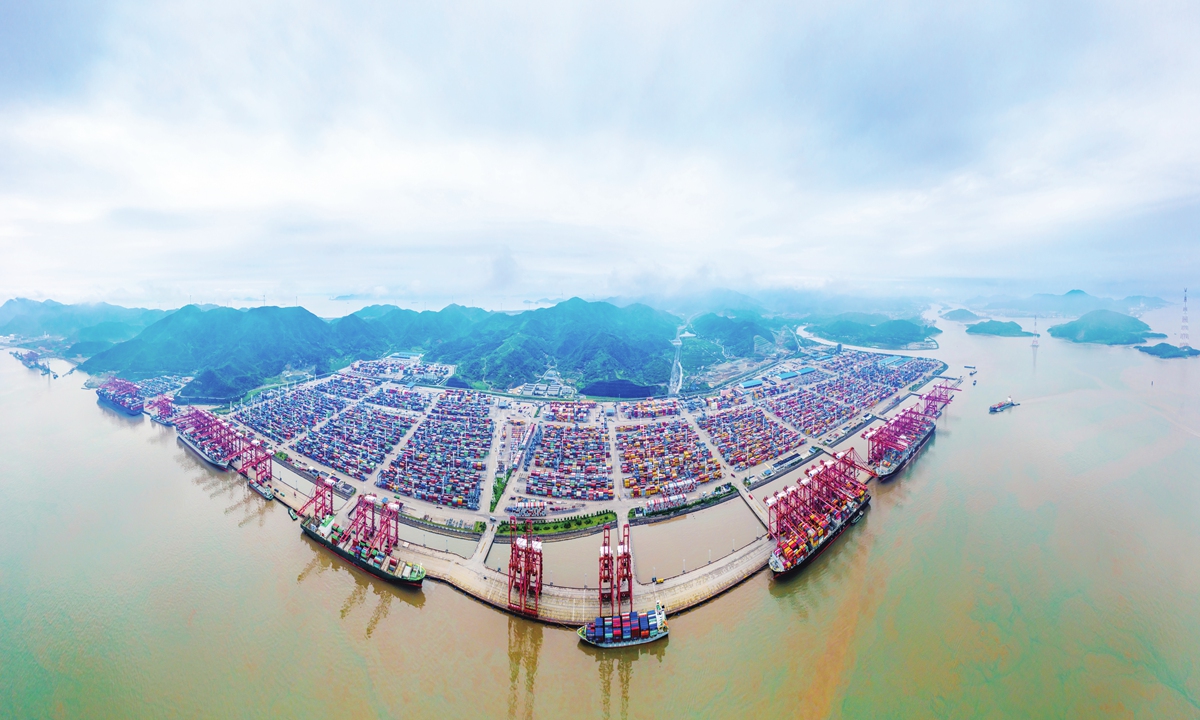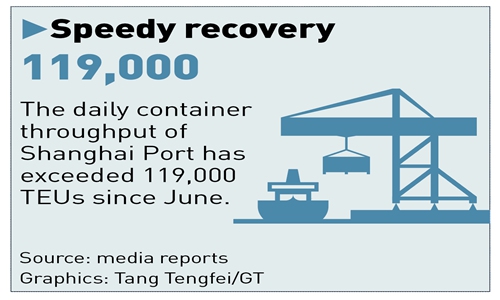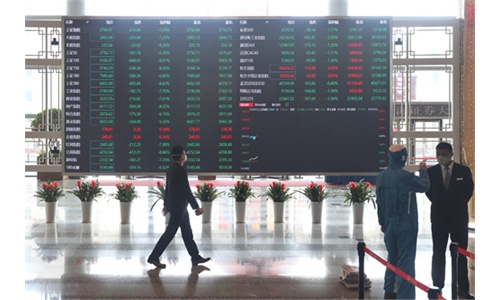Shanghai’s sea and air port cargo volumes back at 90% capacity as traders and producers feel uplift after epidemic restrictions removed
Traders, factory owners feel uplift after epidemic restrictions removed

Photo;VCG
After two months of strict epidemic controls, Shanghai finally gave the greenlight to a general resumption of business at historic speed, with sea and air port cargo volume, the key benchmark for the recovery of the international trading and manufacturing hub in the Yangtze River Delta, all recording a significant rebound to 90 percent of pre-epidemic levels within one week.
As the megacity began to return to normal on June 1, factory owners, traders and logistic service providers were gearing up for production at breakneck speed even during the Dragon Boat Festival holidays, and the shipment volume expected to reach a new peak over the following one to two weeks as the Christmas delivery period has just begun.
As one of the world's top three international air cargo hubs with three major international cargo integrators FedEx, DHL and UPS, the Shanghai Pudong International Airport facilitated more than 200 cargo and mail flights per day during the three-day holidays, with the number of flights already reaching that of pre-epidemic levels, according to media reports.
In terms of shipping, since June, the daily container throughput of Shanghai Port, the world largest one in terms of container throughput, has exceeded 119,000 TEUs. Among these figures, the daily export declaration volume of Shanghai's Yangshan Port has increased to 11,000 orders, an increase of more than 50 percent, a significant jump compared with the 7,000 orders during the closure and control period covering the city.
In order to deliver the in-demand Christmas goods to overseas markets, factory owners in Yiwu, East China's Zhejiang Province are working around the clock while piggybacking on the business recovery in Shanghai and the gradual relaxation of the whole region after the epidemic was largely brought under control.
Normally, the delivery period for Christmas goods begins in April and last until November, this year's delivery came in a bit earlier than usual as traders were fending off potential uncertainties posed by the epidemic, global port congestion, especially in the US, among other factors.
Cai Qinliang, secretary-general of the Industry Association of Christmas Supplies in Yiwu, told the Global Times on Monday that they had begun to stockpile goods in March and have been taking and delivering orders mostly via Ningbo Port in Zhejiang.
While some disruptions have occurred during a period of strict epidemic control across the region, with cargo trucks having difficulty delivering goods on time, the situation has largely eased after Shanghai lifted the restriction measures, according to Cai.
"Now our factories are ramping up efforts with employees working around the clock to deliver goods," Cai said, adding that from March till now, their shipment volume for Christmas related goods has exceeded the same period last year.
Congestion at the port of Shanghai is normalizing, according to shipping data provider Ship Valuation. The average wait time for tankers, bulk carriers and container ships was 34 hours at the end of May, down from 66 hours at the peak of the outbreak in late April, data showed.

Caption
A customer reminder report issued by Danish shipping giant Maersk Line on Wednesday said that in view of the control of the epidemic, the efficiency of truck transportation in and out of Shanghai will gradually be improved.
A logistic service provider based in Shanghai surnamed Zhao is seeing a stable situation since the Dragon Boat Festival, which falls on June 3 this year.
Although the spike in order was not yet apparent, he expected it will enter a boom period in about two weeks, mostly driven by factories coming back online, with the delivery of goods ranging from electric items like home appliance to vehicles taking the lead.
"There are enough trucks and drivers available these days, unlike April and May," Zhao said.
Zhao engages in foreign trade, helping producers deliver goods from factories to the ports, a business which is closely attached with the orders that factories take abroad, which experts said would take some more time to fully back on track.
"It would take just about a month for logistic services including those related to the port fully resume, but it might take much longer time for orders to get back to a historic peak like in previous years," Wu Minghua, a Shanghai-based veteran industry analyst, told the Global Times on Monday.
Multiple factors including supply chain transportation, US port congestions and global inflation, would all cap the expectation for trade, experts noted.

